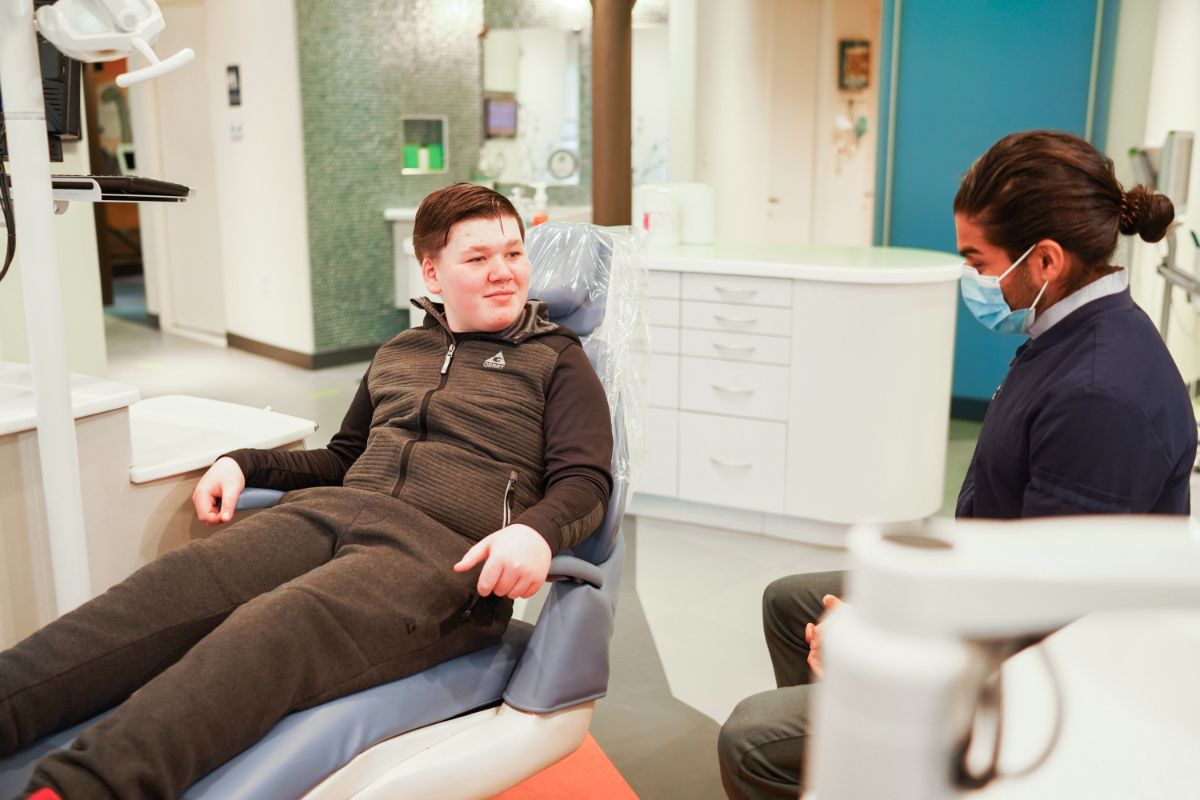For over 50 years, Elm Tree Orthodontics has been making Hamden families smile! Our expert team is committed to helping patients of all ages achieve beautiful, functional smiles. We’re able to do that by using cutting-edge technology to correct misalignments and straighten the teeth, but that’s not all we do here—Dr. Desai also advises patients on a wide range of orthodontic and dental topics. That includes tips on good oral hygiene!
You may think that regular brushing and flossing is all that’s necessary for maintaining a healthy mouth, but bad habits can undermine even the best dental routine and compromise your oral health. These behaviors are so commonplace that you probably engage in one or more of them without even realizing the damage they can cause! To learn more about why these habits are harmful and what you can do to beat them, keep reading below.
Crunching and sipping on the wrong things
Do you ever find yourself crunching on the leftover ice after you’ve finished your favorite drink? This may seem like a harmless habit, but the texture and cold temperature of the cubes can actually cause quite a bit of damage! When you chew on ice frequently, it can cause microscopic cracks in the surface of the enamel, which may lead to bigger dental problems over time.
Sipping on sweet drinks like soda and fruit juice throughout the day is another bad habit to break. Constant exposure to sugar can increase the chances of developing tooth decay, while the acids can wear down the enamel. This may result in tooth sensitivity and cavities.
It’s easier to break these particular habits once you’re aware of them! Try switching to crushed ice over cubes, and if you must have soft drinks, drink them through a straw to minimize the exposure to your teeth. For the most benefit, position the straw towards the back of your mouth instead of resting it against your teeth.
Using your teeth as tools
Orthodontists and dentists alike have seen patients use their teeth for some surprising odd jobs. Uncapping bottles, ripping tags off, opening bags—you name it and we’ve probably heard it! While this habit might save you a few seconds, it can be rough on your teeth. Weakened teeth can chip or fracture, causing discomfort, pain, and sensitivity. To keep temptation at a minimum and your smile in good shape, place simple tools like scissors, nail clippers, and pliers in convenient places around your house and use them instead!
Teeth grinding
The technical term for teeth grinding is bruxism. We define this as any involuntary grinding of the teeth that occurs outside of normal chewing, swallowing, or speaking movements. Teeth grinding is a relatively common habit with several possible causes, including:
- stress and anxiety
- medications
- certain medical conditions
- genetics
- misalignment between the teeth and jaws
- an abnormal bite
- missing or crooked teeth
Even if you aren’t aware that you’re doing it, grinding your teeth can cause problems, ranging from interrupted sleep to pain in your jaw, face, or neck. It can also wear down the enamel of your teeth over time. This may lead to exposure of the soft dentin inside them, which can result in painful tooth sensitivity.
Luckily, there are several possible solutions for bruxism. The first step is identifying and treating any underlying causes. Once these have been addressed, a dentist or orthodontist can correct any existing damage. They may also recommend proactive treatment to help prevent any further impact. This will often be something as simple as wearing a mouthguard overnight!
Sometimes just being mindful of this habit can help you break it, particularly if it’s a stress response. The next time you feel yourself beginning to clench or grind your teeth, try positioning the tip of your tongue between your teeth. Over time, this will train the jaw muscles to relax. You can hold a warm washcloth against your cheek to produce a similar effect.
Poor oral hygiene
Brushing and flossing are just the first step in maintaining healthy teeth and gums. You should also be paying attention to the way you brush and floss, as well as how often you do it!
For example, many people believe that the firmer a toothbrush is, the better it can clean. This isn’t true, and can actually cause problems for older adults. That’s because as we age, our gums tend to recede, leaving the roots of the teeth exposed. These roots are covered with something called cementum, which wears away more easily than enamel. Brushing with firm bristles can irritate the gums and increase tooth sensitivity.
To keep your smile looking and feeling good, we recommend following these basic guidelines.
- Brush at least twice a day for two minutes each time.
- Use a soft-bristled toothbrush and fluoridated toothpaste.
- Floss every night before bed to remove stubborn food particles and get rid of sticky plaque.
- Add an antimicrobial or fluoride mouthwash to eliminate the bacteria that cause bad breath and gum disease.
- Replace your toothbrush every 3-4 months, or sooner if you’ve had a cold or any other illness.
Give your smile some TLC with Elm Tree Orthodontics
Dr. Desai has many years of experience in identifying and treating a range of orthodontic issues. Recognizing harmful oral habits falls under that umbrella, too! If you’re looking to achieve stronger teeth and a healthier smile, we’d love to hear from you. Get in touch today to schedule a FREE consultation with our expert team and take the first step towards improved oral health!


